Filter by
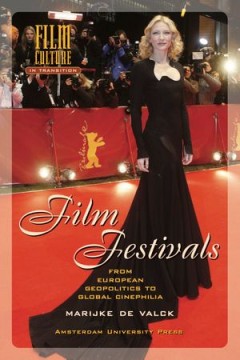
Film Festivals: From European Geopolitics to Global Cinephilia
Film festivals are hugely popular events that attract lovers of cinema worldwide. Focusing on the world's most famous festivals - Cannes, Berlin, Venice and Rotterdam - Film Festivals tells the story of a phenomenon that began in the midst of geopolitical disputes in war-torn Europe. De Valck shows how festivals turned the odds into advantages and developed into a successful global network. Tak…
- Edition
- -
- ISBN/ISSN
- 9789053561928
- Collation
- -
- Series Title
- -
- Call Number
- 791.43 VAL f
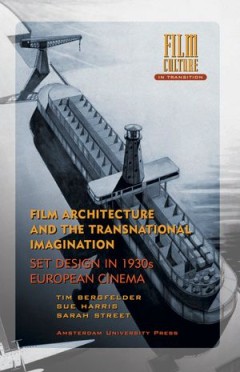
Film Architecture and the Transnational Imagination: Set Design in 1930s Euro…
Film Architecture and the Transnational Imagination presents for the first time a comparative study of European film set design in the late 1920s and 1930s; based on a wealth of designers' drawings, film stills and archival documents, the book offers a new insight into the development and significance of trans-national artistic collaboration during this period. European cinema from the late 192…
- Edition
- -
- ISBN/ISSN
- 9789053569801
- Collation
- -
- Series Title
- -
- Call Number
- -
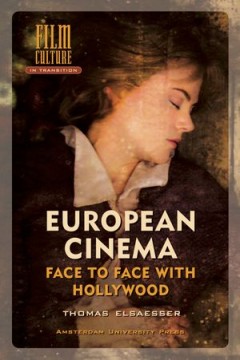
European Cinema: Face to Face with Hollywood
In the face of renewed competition from Hollywood since the early 1980s and the challenges posed to Europe's national cinemas by the fall of the Wall in 1989, independent filmmaking in Europe has begun to re-invent itself. European Cinema: Face to Face with Hollywood re-assesses the different debates and presents a broader framework for understanding the forces at work since the 1960s. These in…
- Edition
- -
- ISBN/ISSN
- 9789053565940
- Collation
- -
- Series Title
- -
- Call Number
- 791.43 ELS e
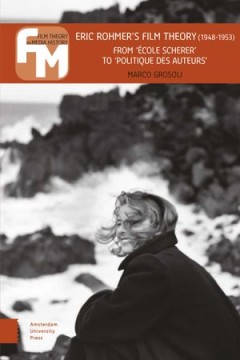
Eric Rohmer's Film Theory (1948-1953): From 'école Scherer' to 'politique de…
In the 1950s, a group of critics writing for Cahiers du Cinéma launched one of the most successful and influential trends in the history of film criticism: auteur theory. Though these days it is frequently usually viewed as limited and a bit old-fashioned, a closer inspection of the hundreds of little-read articles by these critics reveals that the movement rested upon a much more layered and …
- Edition
- -
- ISBN/ISSN
- 9789048537037
- Collation
- -
- Series Title
- -
- Call Number
- 791.43 GRO e
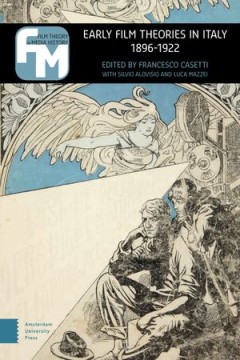
Early Film Theories in Italy, 1896-1922
This collection is the first to bring together scholars to explore the ways in which various people and groups in Italian society reacted to the advent of cinema. Looking at the responses of writers, scholars, clergymen, psychologists, philosophers, members of parliament, and more, the pieces collected here from that period show how Italians developed a common language to describe and discuss t…
- Edition
- -
- ISBN/ISSN
- 9789048527106
- Collation
- -
- Series Title
- -
- Call Number
- 791.43 MAZ m
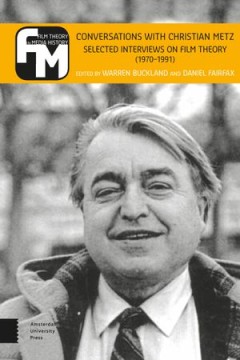
Conversations with Christian Metz: Selected Interviews on Film Theory (1970-1…
From 1968 to 1991 the acclaimed film theorist Christian Metz wrote several remarkable books on film theory: Essais sur la signifi cation au cinéma, tome1 et 2; Langage et cinéma; Le signifiant imaginaire; and L’Enonciation impersonnelle. These books set the agenda of academic film studies during its formative period. Metz’s ideas were taken up, digested, refined,reinterpreted, criticized …
- Edition
- -
- ISBN/ISSN
- 9789048526734
- Collation
- -
- Series Title
- -
- Call Number
- 791.43 FAI c
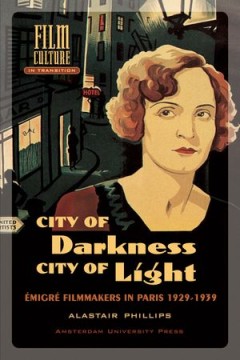
City of Darkness, City of Light: Emigré Filmmakers in Paris 1929-1939
This title is the first ever book-length study of the cinematic representation of Paris in the films of German emigré filmmakers, who found there a first refuge from Hitler. In coming to Paris - the privileged site in terms of production, exhibition as well as the cinematic imaginary of French film culture - these experienced film professionals encountered also a darker side: hostility toward …
- Edition
- -
- ISBN/ISSN
- 9789053566336
- Collation
- -
- Series Title
- -
- Call Number
- 791.43 PHI c
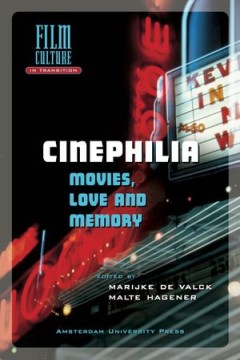
Cinephilia: Movies, Love and Memory
This anthology explores new periods, practices and definitions of what it means to love the cinema. The essays demonstrate that beyond individualist immersion in film, typical of the cinephilia as it was popular from the 1950s to the 1970s, a new type of cinephilia has emerged since the 1980s, practiced by a new generation of equally devoted, but quite differently networked cinephilies. They ob…
- Edition
- -
- ISBN/ISSN
- 9789053567685
- Collation
- -
- Series Title
- -
- Call Number
- 791.43 CIN c
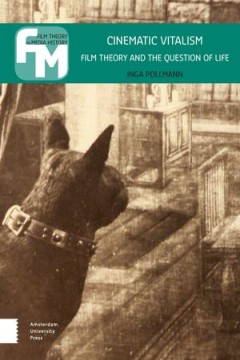
Cinematic Vitalism: Film Theory and the Question of Life
This book argues that there are constitutive links between early twentieth-century German and French film theory and practice, on the one hand, and vitalist conceptions of life in biology and philosophy, on the other. By considering classical film-theoretical texts and their filmic objects in the light of vitalist ideas percolating in scientific and philosophical texts of the time, Cinematic Vi…
- Edition
- -
- ISBN/ISSN
- 9789048534005
- Collation
- -
- Series Title
- -
- Call Number
- 791.43 POL c
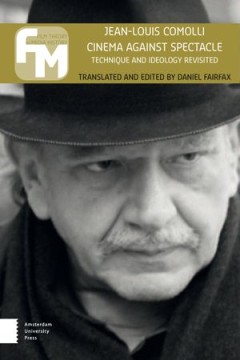
Cinema Against Spectacle: Technique and Ideology Revisited
Jean-Louis Comolli’s six-part essay Technique and Ideology had a revolutionary effect on film theory and history when it first appeared in Cahiers du Cinéma in 1971. In 2009, Comolli revisited his earlier text, arguing that the present age, marked by the total dominance of media-filtered spectacle over image production, makes the need for an 'emancipated, critical spectator' more pressing th…
- Edition
- -
- ISBN/ISSN
- 9789089645548
- Collation
- -
- Series Title
- -
- Call Number
- 791.43 COM c
 Computer Science, Information & General Works
Computer Science, Information & General Works  Philosophy & Psychology
Philosophy & Psychology  Religion
Religion  Social Sciences
Social Sciences  Language
Language  Pure Science
Pure Science  Applied Sciences
Applied Sciences  Art & Recreation
Art & Recreation  Literature
Literature  History & Geography
History & Geography